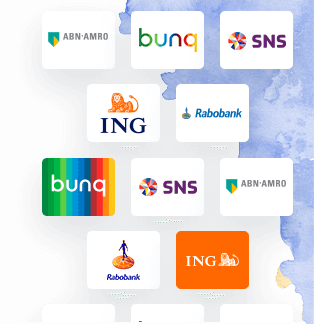
Starting a university degree in the Netherlands is step one on the path to your new career. And while some of your time should be spent soaking up Dutch culture, spending time in cafes (and of course, the occasional club), you shouldn’t miss out on using your time here to network.
When the university is over, it will be time to get a job - and networking is one way to make sure you are one step ahead of the rest.
Here at Student-Helpr, we’ve put together a guide to explain exactly what networking is it, how it can benefit international students and the best ways to you can go about it.
What is networking?
Put simply, a network is a group of people or things that are connected to one another somehow. A professional network is a community of people working within the same niche that help one another to achieve their career goals.
Connecting with other people in your niche can lead to job opportunities, access to recruiters, work experience and the chance to look behind the curtains in your chosen field. It can also increase your social standing within your work area and may also result in you getting invited to important events within your field.
It’s a great way to let other people in your field know who you are, promote yourself and learn from others in your chosen industry. Networking whilst studying in the Netherlands can also teach you about Dutch business culture and can offer career contacts (just in case you are reluctant to go home when you graduate).
How to network effectively
#1 Socialise with your classmates
Your classmates may be students now, but one day they’ll be working too - maybe in the same area that you hope to develop in. Think ahead and develop contacts now, that may be helpful in the future.
Be sure to mix with people that study in the same subject area as you and try hard to make meaningful, valuable connections.
In the Netherlands, it is common for workplaces and study groups to have drinks at the end of the day, particularly on a Friday. If you are invited to such an event, be sure to go along.
Learn to become comfortable with small talk and you will thrive in these kinds of situations. If this is something you find tricky, it could be useful to think about what you might discuss ahead of time and practice with a Dutch friend.
#2 Work hard in class
If you don’t want to pursue a career in academia, it may feel that how you act in class is unimportant when it comes to your future work. But actively participating in group discussions and producing thoughtful work is bound to win you brownie points with your professors.
Having a good relationship with your tutors is essential when looking for references after your studies. Your professors may also be well connected, not only to coworkers but also to past students.
This means that developing a good relationship with teachers could lead to helpful introductions to others within your niche - not to mention the fact that it will give you good grades, which is always a plus when you’re hunting for work.
#3 Use social media
These days, much of the professional networking that takes place does so online. Set yourself up with a LinkedIn account and tailor your social media channels towards your chosen career path.
Join Facebook groups that discuss the topics you hope to work on in future and follow leaders in your field on sites such as Twitter.
If there is a company that you dream of working for, make yourself known to them online. Follow them across all channels and actively engage with the things that they post.
This way, when it comes to searching for a job, you can reach out on social media and they may already have some idea of who you are.
#4 Intern
Undertaking an internship is a great way to gain experience and get a feel for the industry that you hope to work in. Many people that take on internships end up going back to the same company to work upon graduation.
While many internships are unpaid or only pay travel expenses, in the Netherlands internships can even be organised as part of your university course and you can earn credits for them.
Work hard during your internship and make connections that will build your professional network.
#5 Go to events
Keep your finger on the pulse and look out for events that are taking place in your chosen niche. Attending profession-specific events offer the opportunity for you to make valuable connections.
Perhaps your university is organising a networking event for students. Or perhaps you noticed an event advertised on one of the Facebook groups you are a member of. Go out of your way to attend these events, even if this means cancelling other plans or taking a day off work.
You will reap the rewards in the long term so attend as many as possible. Make sure you carry a business card or CV along with you - or ask for a card from others. Follow up with connections the next day via email.
These events are a great way to hear about opportunities you might otherwise not have had access to.
Follow the tips above and the team at Student-Helpr are convinced you will be well on your way to thriving in your chosen career path.


























